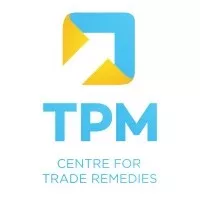- in India
- within Media, Telecoms, IT and Entertainment topic(s)
Indian Updates
India-EFTA trade agreement to take effect on 1st October 2025
The Trade and Economic Partnership Agreement signed by India and the European Free Trade Association (EFTA) will come into effect on 1st October 2025. Under the agreement, EFTA commits to invest $100 billion in India over 15 years and create one million direct jobs. India will also provide preferential access to Swiss exports such as watches, chocolates, and pharmaceuticals by reducing or eliminating duties.
India and Oman expected to sign the Comprehensive Economic Partnership Agreement in the coming weeks
India and Oman are set to sign the Comprehensive Economic Partnership Agreement (CEPA) soon, with negotiations reaching a conclusion. The Agreement aims to reduce or eliminate customs duties, promote trade in services, and attract investments. Major imports into India include urea, polymers of propylene and ethylene, petroleum coke, gypsum, chemicals, iron and steel. The CEPA is expected to widen this trade basket for both countries.
Global Updates
Indonesia and Canada sign the Comprehensive Economic Partnership Agreement
Indonesia and Canada signed the Comprehensive Economic Partnership Agreement (CEPA) on 24th September 2025. The CEPA is set to take effect in 2026 and is expected to provide substantial benefits in terms of reduction or elimination of tariffs. The Agreement seeks to boost trade in key sectors such as agriculture, energy, and technology. It aims to eliminate more than 90 per cent of tariffs on Indonesian imports. Canada has committed to reduce tariffs on 95 per cent of Canadian exports to the Indonesian market.
Indonesia and the European Union sign the Comprehensive Economic Partnership Agreement
The Indonesia–European Union Comprehensive Economic Partnership Agreement (IEU-CEPA) was signed on 23rd September 2025. The agreement is expected to remove up to 98% of tariffs and reduce trade barriers, including those linked to environmental regulations. The Agreement is reported to double Indonesia's exports to the EU. Key sectors expected to benefit include Indonesian palm oil, textiles, and footwear, while the EU gains enhanced access to food, agriculture, automotive, and chemical industries.
The content of this article is intended to provide a general guide to the subject matter. Specialist advice should be sought about your specific circumstances.


